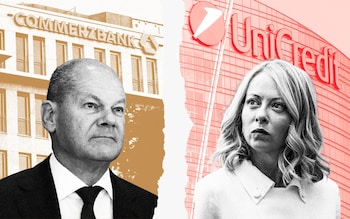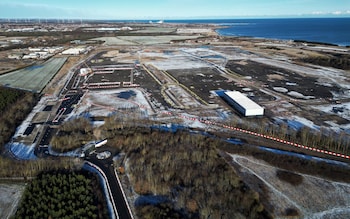Des Lynam OBE, 82, is a television and radio presenter who found fame presenting BBC TV’s Grandstand from 1979 to 1991. For over 20 years, he was the BBC’s main sports anchorman, also hosting Sportsnight and Match of the Day. He covered many of the world’s major sporting events such as Wimbledon, the Grand National and the Olympics.
Today, he lives in West Sussex with his wife Rose.
How did your childhood influence your attitude to money?
I was taught the significance of money and didn’t waste it, except on Dinky Toys.
I was born in Ennis, County Clare, Ireland. In the war, my father was called up into the British Army. He was in the Far East and I didn’t meet him until I was three. I’d heard about this daddy person. He came back and picked me up; I thought: “That’s a bit of a liberty!”
In Ireland, it was difficult to gain employment. I was five when we moved to England, settling in Brighton in a rented terraced house. My parents entered the nursing profession, which was as badly paid as it is now, so they were careful with money because they had to be.
What was your first job?
Stacking shelves in a supermarket. I’d go in at 5.30pm on Friday nights after the week’s schooling, stay till eight and return in the morning from 8.30am to one in the afternoon, for which I got the princely sum of 15 shillings and ninepence. I did it with a mate who’s still my best friend all these years later.
How did you get into broadcasting?
Journalism was my ambition but I couldn’t get in. So I took sundry jobs to earn a living.
I got into broadcasting by accident. A chap rang me from BBC Radio Brighton saying: “I’ve seen your sport pieces. Do you fancy a bit of broadcasting?” After the voice test and interview he said: “We’ll use you when we can.”
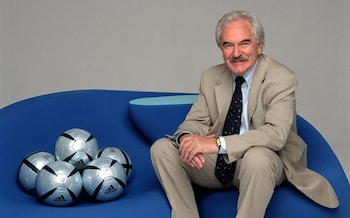
Much later out of the blue, I got a call saying someone’s sick and would I do a report on the Brighton Albion? So I packed up my job and took up my hobby. I was going to earn next to nothing and people said: “That piece of nonsense won’t get you anywhere.”
But within two months I was with national BBC Radio, and from 1970 presenting Sports Report on £1,900 a year, driving an MGB, eating out and generally behaving badly.
Are you a saver or a spender?
Saver. I don’t like shopping but my wife does, so she’s dropped me from the routine.
The only things I’ve loved spending money on are cars and golf equipment. I had a 1973 E-Type Jaguar but during a national crisis I couldn’t get petrol, so I got rid of it – which I’ve regretted ever since.
Does money make you happy?
Not really, but it cushions the blows: if you’re sick, you can get medical attention more quickly if you have money.
Your best and worst financial decisions?
Both are in the same answer. I left the BBC in 1999 to go to ITV. It was three times the money I was getting at the BBC but the BBC product was better than ITV’s. I was influenced by BBC guys I’d worked with who started an exodus to ITV.
What did you learn from that move?
Think about it longer before you do it. Don’t be charmed by what seems on the face of it a great deal. It was a great deal but not the greatest move.
Have you done lucrative TV adverts?
Yes, Miracle-Gro. An American company flew me first-class to America in the late-90s; put me up at the best places.
They brought two plants over from the UK to stick in a garden in Florida, where they were sure the sun would shine, so we could point at them. I did two or three ads for them that went out in Britain and they paid me £100,000. My friends got great humour out of it because they know the only thing I’ve ever done in a garden is sit in it.
What are the best and worst things you’ve ever bought?
Best: the house I now live in.
Worst: some gimmicky golf clubs to try and improve my chipping. I paid quite a bit but they were useless – or I was useless and they were no help for me being useless.
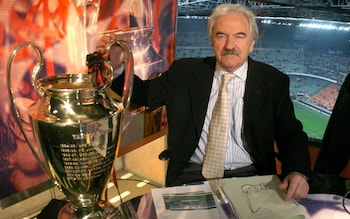
Have you ever been ripped off?
Yes, badly by an insurance salesman I bought a pension scheme through. He was putting the money into his own bank account. He was a bona fide company representative. I was advised by somebody I knew who’d had a good experience with him.
I lost the bulk of £200,000 because I probably wasn’t paying enough attention.
What other lessons have you learnt about money or business?
Look after it. Don’t think it’ll always be there because things change in your life.
In broadcasting you’ve got to concentrate on one thing. I did other things but I always stuck with sports, otherwise you become a jobbing broadcaster: they hire you, then get tired of you because somebody else comes along.
I turned down more shows than I care to remember, such as Crimewatch. A woman once wanted me for a breakfast television franchise. I said: “You think I’m going to get up at 4am?”
I let them put my name on the bid that said I was the kind of person they wanted. They got the contract; I still said no and they graciously paid me a few quid to have used my name.
Can you remember a money-related travel incident?
We went on holiday to Thailand to a posh hotel and on the wine list each night they had Gevrey-Chambertin, which I’m partial to. I worked out it was costing only £8 a bottle and thought this is a steal because it costs a lot more in a supermarket. When I got the bill it was £80 a bottle. We’d had one every night for 10 nights.
Have you gambled?
Yes. I’ve owned bits of racehorses, none of which ever finished in the top three. That cost me £5,000 to £10,000 all up. I was constantly advised by racing experts. It’s fun. You go along, back your own horse, watch it fail then hear the trainer’s excuses.
Any close encounters as a sports presenter?
When Muhammad Ali was fighting [George] Foreman in Rumble in the Jungle in 1974 in Zaire (now the Democratic Republic of the Congo) I went there to cover it with boxing writers.
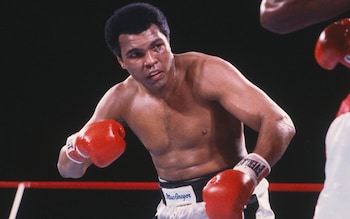
I was sitting on a couch next to him while he demonstrated to us how he’d beat Foreman with a jab, using my nose as his target. As he punched, I flinched and pulled back, then thought I’ll stay still. If he makes me bleed I’ve got the scoop of all scoops: Muhammad Ali made my nose bleed.
But Ali being Ali with his perfect timing avoided that, saying to me with his enigmatic smile: “You ain’t as dumb as you look.”
Des Lynam’s humour books about animals Now Who’s Talking? 1 and 2 are available for purchase in stores.
Disclaimer: The copyright of this article belongs to the original author. Reposting this article is solely for the purpose of information dissemination and does not constitute any investment advice. If there is any infringement, please contact us immediately. We will make corrections or deletions as necessary. Thank you.
